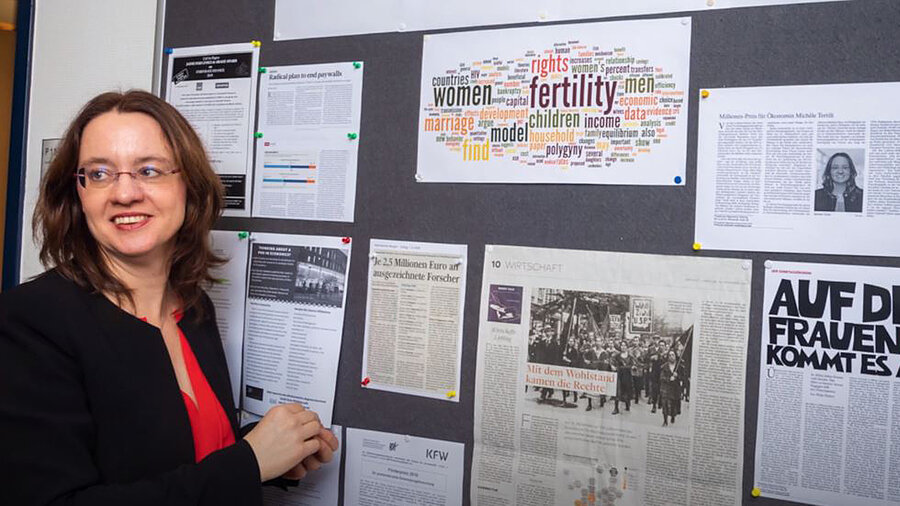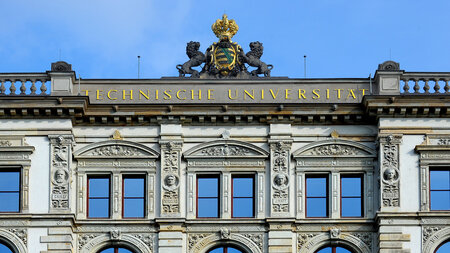What Influence Test Capacities Have on Productivity During Lockdown
Leibniz Prize winner Michèle Tertilt from the University of Mannheim to give online guest lecture at Chemnitz University of Technology on July 7, 2021, 11:15 a.m.
-

Prof. Dr. Michèle Tertilt holds the Professorship of Macro- and Development Economy at the University of Mannheim. Photo: Screenshot from the film portrait for the German Research Foundation’s 2019 Gottfried Wilhelm Leibniz Prize
The so-called lockdown to contain the Corona pandemic has led to intense discussions on very different levels - political, social, medical, to name just a few. One of the topics has been the question of how to reconcile economic issues with infection control, especially with regard to individual self-determination and age structure in society.
Prof. Dr. Michèle Tertilt, holder of the Professorship of Macro- and Development Economy at the University of Mannheim, conducted research on this topic. She will present her results, especially regarding the economically optimal lockdown, at the Faculty of Natural Sciences’ Physical Colloquium at Chemnitz University of Technology. The event will take place online in English via Zoom on July 7, 2021, at 11:15 am.
Login details:
ZOOM Conference: https://us02web.zoom.us/j/85171705412
Meeting ID: 851 7170 5412
The focus of this current research by Michèle Tertilt was an extended standard epidemiological model that looks at test-taking and personal willingness to execute "social distancing" on the one hand and the age distribution of the subjects on the other. A key finding of the study was that with sufficient testing capacity, a lockdown can be much easier with increasing productivity.
About Prof. Dr. Michèle Tertilt
Michèle Tertilt, born in Münster in 1972, studied economics at the University of Bielefeld. She graduated in 1997. She earned her doctorate at the University of Minnesota in 2003 before moving to Stanford University as an assistant professor. She has been a full professor at the University of Mannheim since 2010. She has received numerous honors, including the Gossen Prize from the Verein für Socialpolitik in 2013, an ERC Consolidator Grant "Gender Differences: A Macroeconomic Perspective" 2013-2018, and the Leibniz Prize from the German Research Foundation in 2019. Her macroeconomic research focuses on development and family economics.
Multimedia:

Embedding of external provider's content
The display of embedded external content of the platform YouTube on the website of Chemnitz University of Technology and therefore the connection to the external server of the platform provider requires your consent before. First when you have given your consent for this provider (personal) data will be transmitted to the external server operator so that the content display can take place. The operator may be located in a non-European country.
With submitting the button you agree formally and voluntarily that you personal data as described in the Data Protection Policy with its there specified purposes will be processed for embedding of external content on the website of Chemnitz University of Technology. Your consent can be revoked separately or as a whole at any time without undue disadvantages for the future.
Matthias Fejes
29.06.2021





